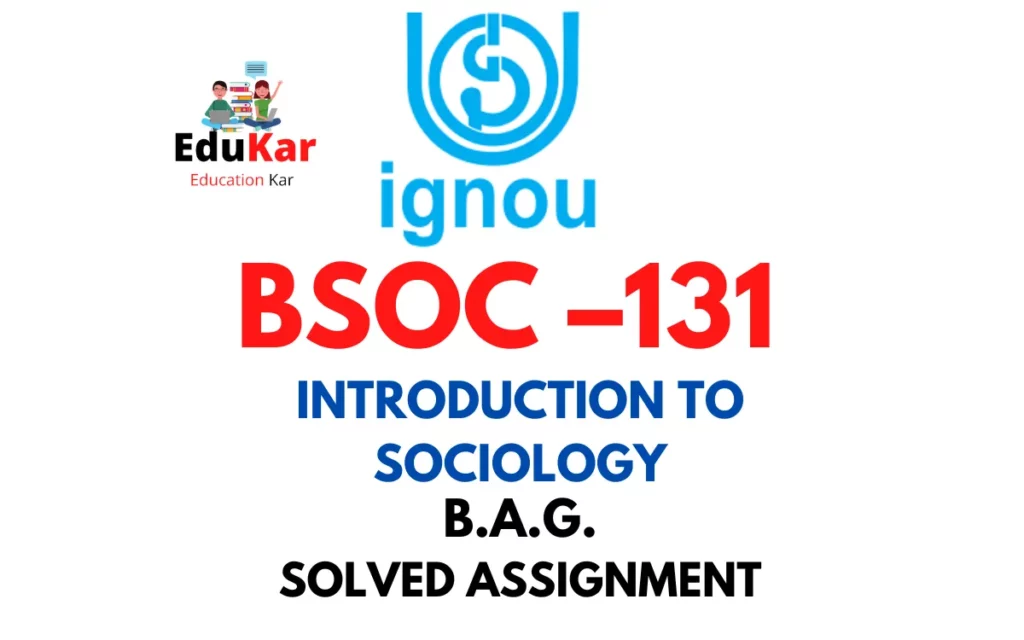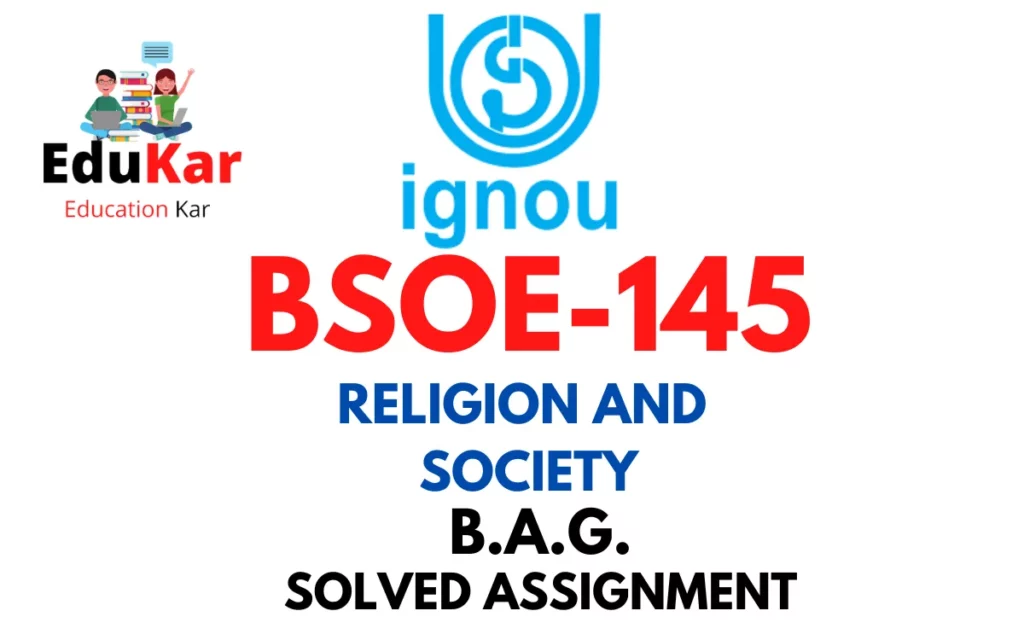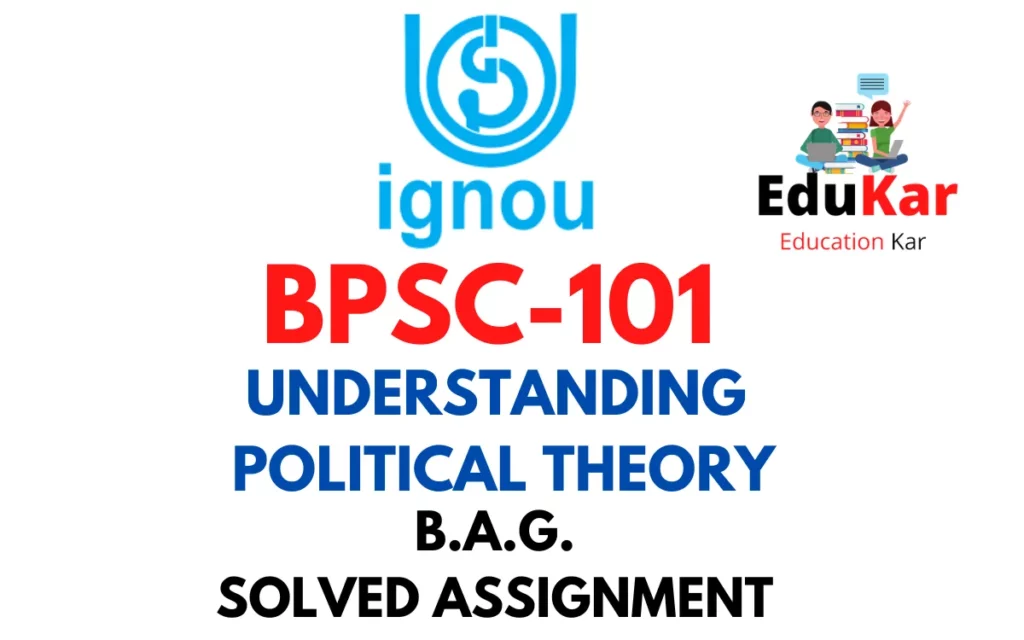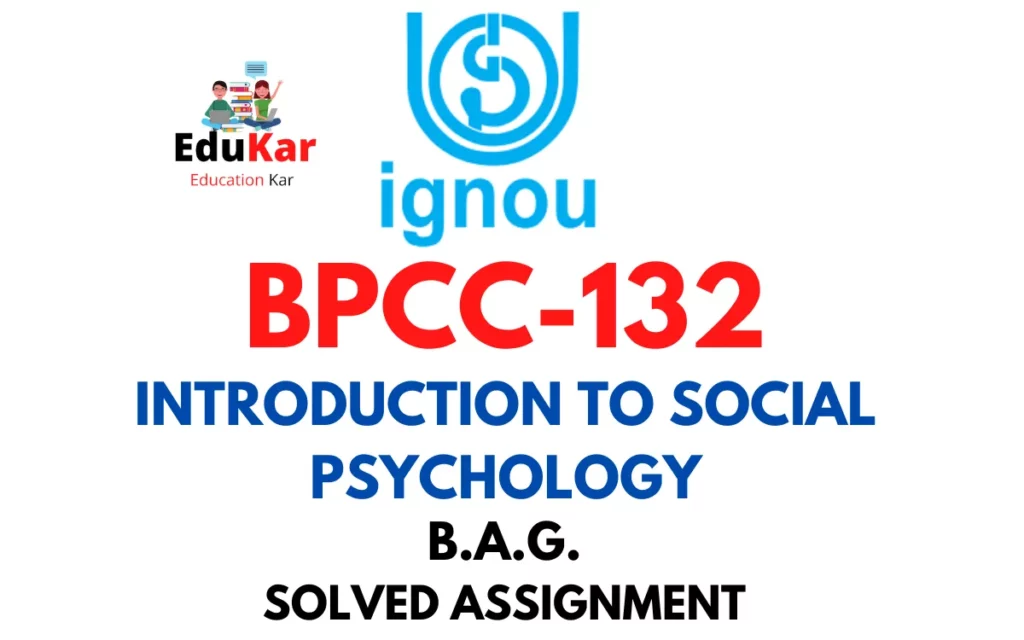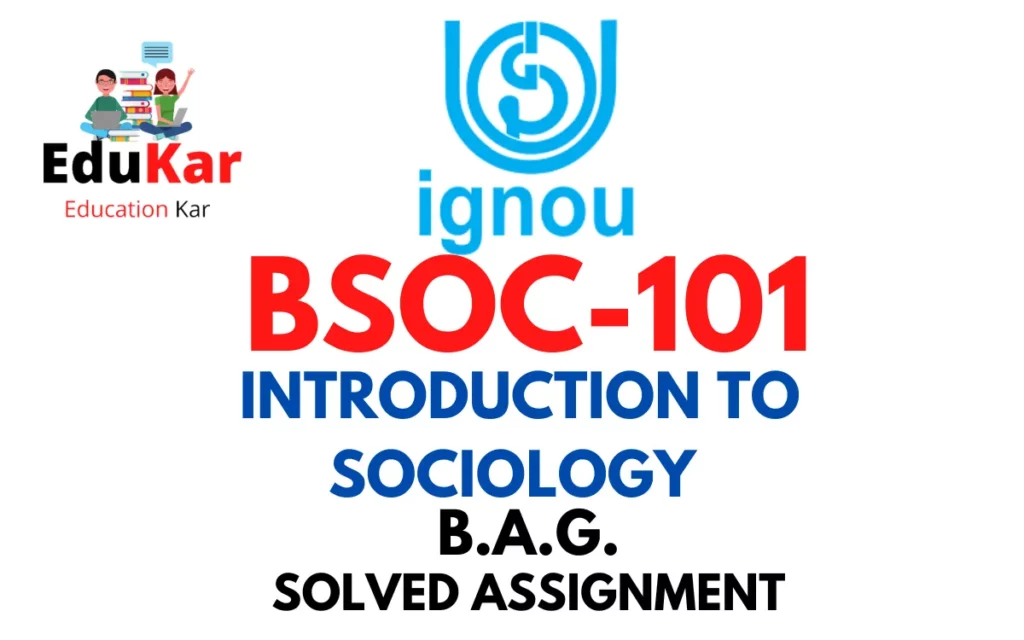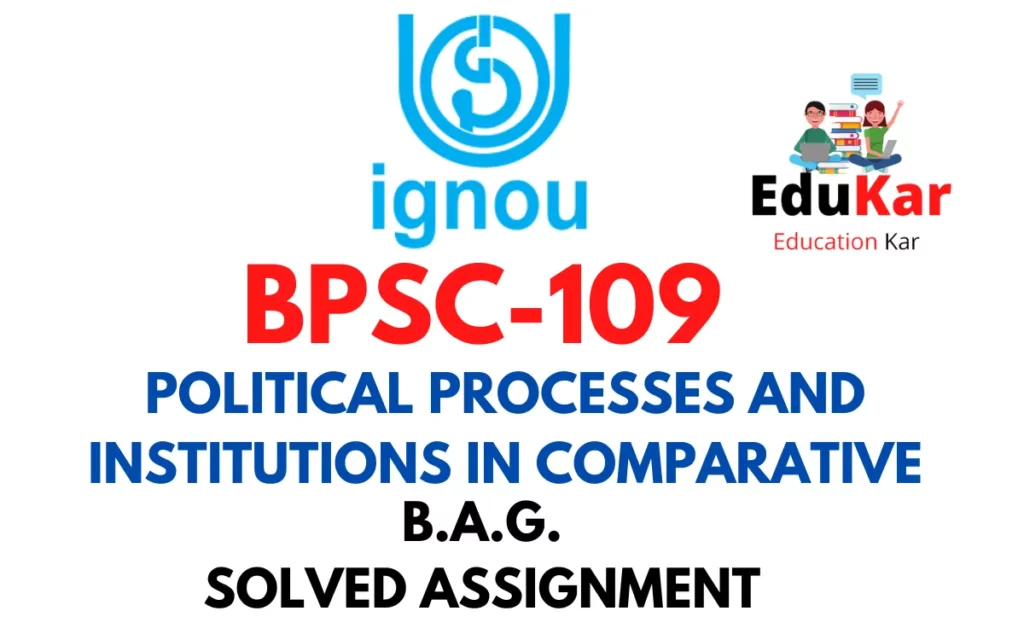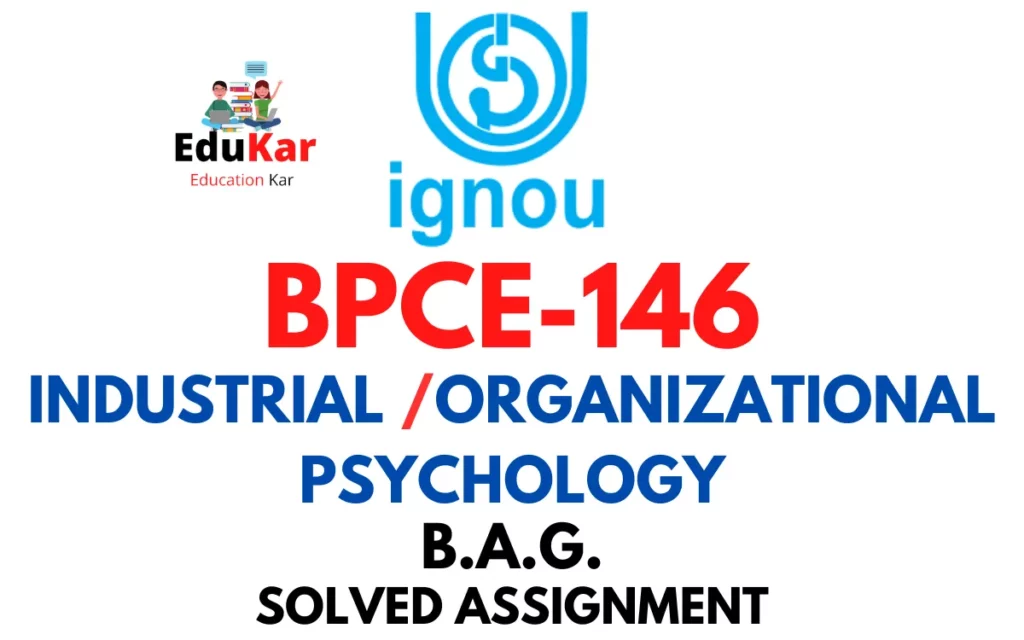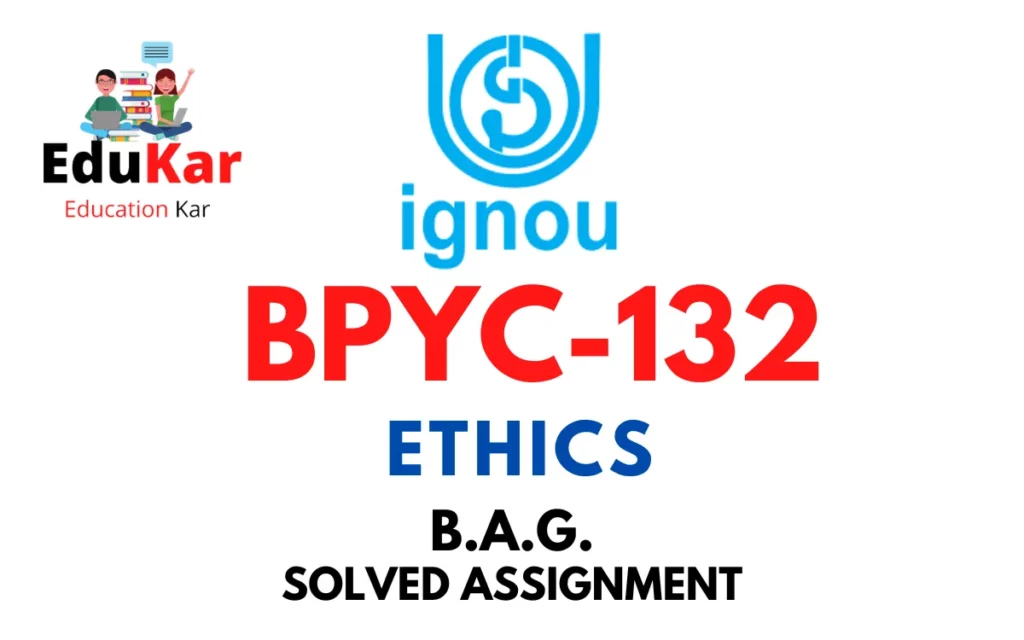Contents
- 1 Assignment – I
- 2 Answer the following in about 500 words each.
- 3 1.Write a note on politics as a political activity.
- 4 2. Examine if political theory is dead.
- 5 Assignment – II
- 6 Answer the following questions in about 250 words each.
- 7 3. What are J.S. Mill’s notions of Liberty’? Explain.
- 8 4. Discuss equality of opportunity.
- 9 5. Elaborate upon justice as a term of synthesis.
- 10 Assignment – III
- 11 Answer the following questions in about 100 words each.
- 12 6. Theory of Natural Rights
- 13 7. Substantive democracy
- 14 8. Gender mainstreaming as a strategy
- 15 9. Libertarian theory of citizenship
- 16 10. Censorship
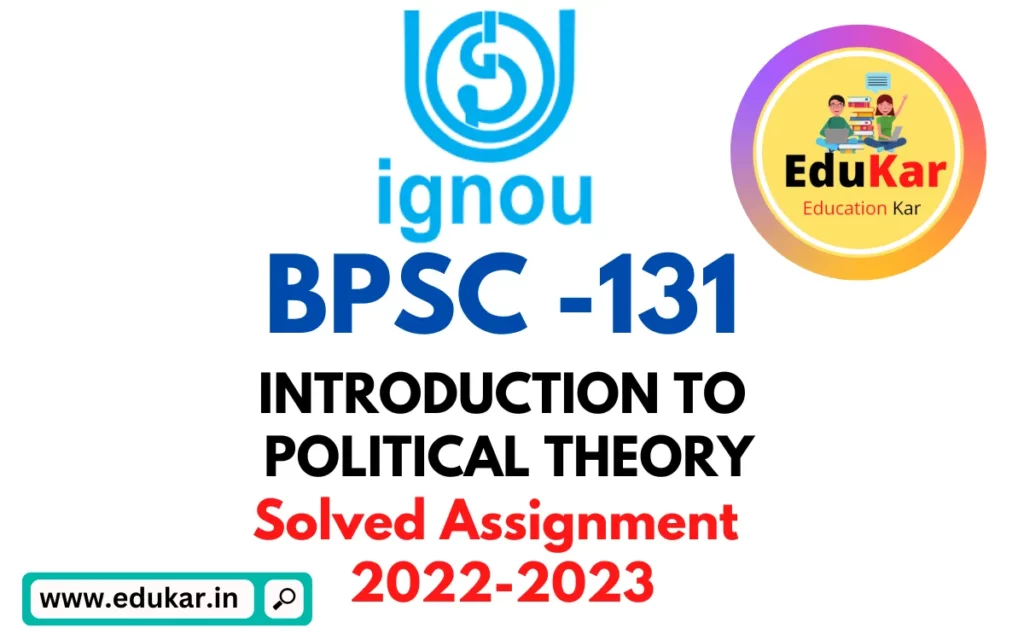
| Title | IGNOU: BPSC -131 Solved Assignment 2022-2023 (INTRODUCTION TO POLITICAL THEORY) |
| University | IGNOU |
| Degree | Bachelor Degree Programme |
| Course Code | BPSC -131 |
| Course Name | INTRODUCTION TO POLITICAL THEORY |
| Programme Name | Bachelor of Arts (General) |
| Programme Code | BAG |
| Total Marks | 100 |
| Year | 2022-2023 |
| Language | English |
| Assignment Code | BPSC-131/ASST/TMA/2022-23 |
| Last Date for Submission of Assignment: | For June Examination: 31st April For December Examination: 30th September |
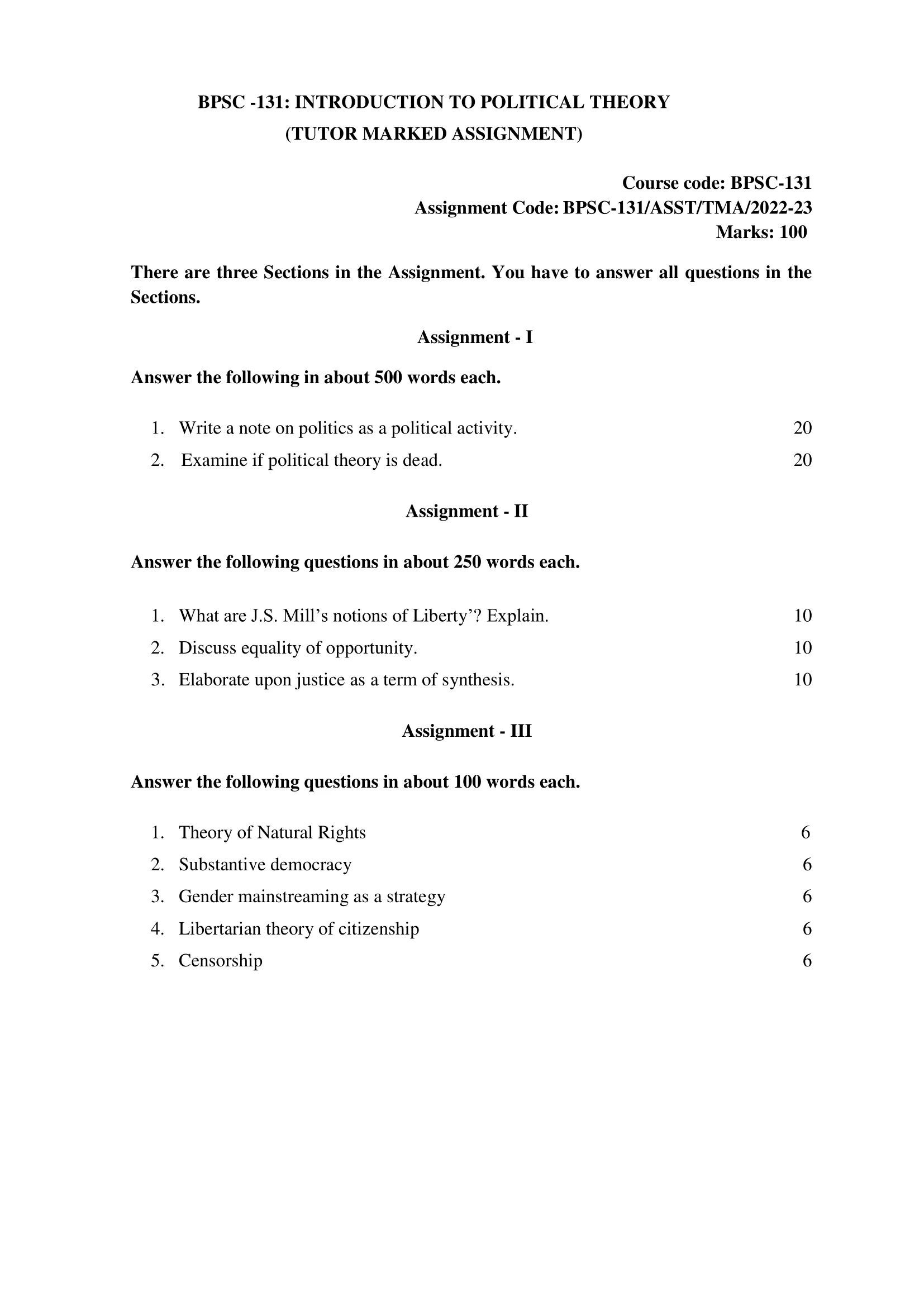
Assignment – I
Answer the following in about 500 words each.
1.Write a note on politics as a political activity.
Ans: Politics is a complex and dynamic phenomenon that has a significant impact on our lives and society. It is the process of making decisions and taking actions that affect a group of people or a community. Politics as a political activity refers to the use of power and influence to shape the policies and outcomes of a society.
Politics can be classified into two main categories: formal politics and informal politics. Formal politics refers to the structured and institutionalized process of decision-making that takes place in government institutions and political parties. This type of politics is guided by rules, laws, and regulations that ensure a degree of fairness and transparency. On the other hand, informal politics refers to the more informal and personal ways of influencing decision-making that occur outside of formal political institutions. This type of politics includes political activism, lobbying, and interest groups.
Politics is a central aspect of democratic societies, where citizens have the right to participate in the political process and influence decision-making. In democratic societies, citizens elect representatives to make decisions on their behalf, and political parties compete for power through elections. However, politics is not limited to democratic societies. Even in authoritarian regimes, politics plays a crucial role in shaping policies and outcomes.
Politics can have a significant impact on various aspects of our lives, such as economic policies, social policies, and foreign policies. For example, political decisions can affect the distribution of wealth and resources, the provision of public services, and the regulation of markets. In addition, political decisions can shape the way we interact with other countries and the international community, such as through trade agreements, diplomatic relations, and military interventions.
The study of politics is known as political science, which seeks to understand the ways in which power and influence are exercised in society. Political science aims to provide insights into the functioning of political systems, the behavior of political actors, and the outcomes of political decisions. It is a multidisciplinary field that draws on a variety of disciplines, including economics, history, sociology, and psychology.
2. Examine if political theory is dead.
Ans: Political theory has been an essential part of the study of politics for centuries. It is the systematic and critical examination of the concepts and principles that shape our political systems, institutions, and practices. Political theory seeks to understand the nature of power, authority, justice, and freedom, and how these concepts are reflected in our political arrangements. In recent years, however, there have been debates about the relevance and vitality of political theory, with some arguing that it is dead or in a state of crisis.
One of the main criticisms of political theory is that it has become too abstract and disconnected from the reality of politics. Some argue that political theory has become overly focused on abstract concepts and idealized models, neglecting the practical realities of politics and the complexity of social and political problems. This has led to a lack of engagement with contemporary political issues, making political theory less relevant and useful to policymakers and citizens.
Another criticism is that political theory has become too narrow and exclusionary. Some argue that the dominant traditions in political theory, such as liberalism and conservatism, have failed to fully embrace diversity and the experiences of marginalized groups. As a result, political theory has become disconnected from the realities of those who experience the consequences of political decisions, leading to a lack of representation and accountability.
Despite these criticisms, political theory remains an essential aspect of the study of politics. Political theory provides a framework for understanding the values and principles that underpin our political systems and practices, and helps us to reflect on the ethical and moral implications of political decisions. By providing a critical examination of political concepts and principles, political theory can help to promote democratic discourse and accountability, and ensure that political decisions are informed by a deeper understanding of justice and freedom.
Furthermore, political theory is not static and continues to evolve in response to new political challenges and developments. New political theories, such as critical theory, feminist theory, and post-colonial theory, have emerged to challenge dominant traditions and provide a more inclusive and diverse understanding of politics. These new theories have opened up new avenues for understanding the complexity of contemporary political problems, such as globalization, inequality, and environmental degradation.
Assignment – II
Answer the following questions in about 250 words each.
3. What are J.S. Mill’s notions of Liberty’? Explain.
Ans: John Stuart Mill was a British philosopher and economist who lived in the 19th century. He is most famous for his works on political philosophy, particularly for his ideas on liberty. Mill’s notions of liberty can be understood by considering two distinct but interrelated concepts: individual liberty and social liberty.
Individual liberty refers to the idea that each person should be free to act as they see fit, so long as they do not harm others. Mill believed that individuals should have the freedom to pursue their own goals and interests, as long as they do not infringe on the rights of others. He argued that limiting individual freedom should only be done in extreme circumstances where it is necessary to prevent harm to others.
Social liberty, on the other hand, refers to the idea that society should be structured in such a way that it provides individuals with the greatest possible amount of freedom. Mill believed that this could be achieved through a system of representative democracy, in which individuals have a say in the decisions that affect their lives. He argued that democracy is the best form of government because it allows individuals to have a voice in the political process and protects their rights and freedoms.
4. Discuss equality of opportunity.
Ans: Equality of opportunity refers to the idea that everyone should have a fair and equal chance to succeed in life, regardless of their background, ethnicity, race, gender, or other factors. It is the belief that everyone should have the same chances to achieve their goals and aspirations, and that no one should be unfairly disadvantaged based on their circumstances.
This concept is closely related to the idea of meritocracy, which holds that people should be selected and promoted based on their abilities and achievements, rather than their social status or connections. Equality of opportunity is important because it ensures that everyone has an equal shot at success, regardless of where they come from or what they look like. It is seen as a cornerstone of liberal democracies, as it provides individuals with the freedom to pursue their own goals and aspirations.
However, in practice, equality of opportunity can be difficult to achieve, as there are often systemic barriers and inequalities that prevent some people from having an equal shot at success. For example, racism, sexism, and poverty can all create significant barriers that make it difficult for some individuals to succeed. To address these inequalities, many countries have implemented policies and programs aimed at promoting equal opportunities, such as affirmative action programs, diversity initiatives, and anti-discrimination laws.
5. Elaborate upon justice as a term of synthesis.
Ans: Justice is a term that refers to the principle of fairness and impartiality in the treatment of individuals and groups. It is often used as a term of synthesis to describe a holistic concept that encompasses a wide range of values, including equality, fairness, and respect for individual rights.
One way to understand justice as a term of synthesis is to consider it as a way of bringing together different values and principles in a coherent and harmonious way. In this sense, justice can be seen as a way of balancing competing interests and ensuring that everyone is treated fairly and equitably. For example, justice may require balancing the rights of individuals with the needs of the community, or balancing the needs of the present with the interests of future generations.
Another way to understand justice as a term of synthesis is to consider it as a way of reconciling different perspectives and world views. For example, justice may require balancing the interests of different ethnic or religious groups, or balancing the interests of different social classes or economic groups. In this sense, justice can be seen as a way of fostering cooperation and collaboration between different groups and ensuring that everyone has a voice in the decisions that affect their lives.
Assignment – III
Answer the following questions in about 100 words each.
6. Theory of Natural Rights
Ans: The Theory of Natural Rights is a political philosophy that argues that individuals have inherent rights that are not derived from governments or societies but exist independently. These rights, such as the right to life, liberty, and property, are considered natural and unalienable and are seen as the foundation of a just and free society. The theory was first articulated by Enlightenment philosophers such as John Locke and was a central principle of the American Revolution. Natural rights theory holds that the primary role of government is to protect these rights and that individuals have the right to overthrow a government that fails to do so. The theory remains influential in contemporary political discourse, particularly in debates about individual freedoms and the proper role of government.
7. Substantive democracy
Ans: Substantive democracy is a concept that emphasizes the substance or outcomes of democracy, rather than just the procedural aspect of democratic decision-making. In substantive democracy, the focus is on ensuring that the distribution of power and resources within a society is equitable and that all individuals have a meaningful say in the decisions that affect their lives. This approach views democracy not just as a form of government, but as a way of life that requires the active participation of citizens in the political process and the promotion of social justice. Proponents of substantive democracy argue that traditional liberal democracies have failed to address the underlying inequalities that limit the effective exercise of democratic rights and that a more robust form of democracy is necessary to address these challenges. Substantive democracy remains a subject of debate and an important aspect of democratic theory and practice.
8. Gender mainstreaming as a strategy
Ans: Gender mainstreaming is a strategy aimed at promoting gender equality by integrating a gender perspective into all aspects of political, economic, and social policies and programs. This approach seeks to address the root causes of gender inequalities by challenging the assumptions, norms, and structures that sustain them. The goal of gender mainstreaming is to ensure that both women and men have equal opportunities, rights, and responsibilities, and that the concerns and experiences of women are fully considered in all policy decisions. To implement gender mainstreaming effectively, it is necessary to involve both women and men in the process, build capacities and knowledge on gender issues, and monitor and evaluate the outcomes of gender-mainstreamed policies and programs. Gender mainstreaming has been widely adopted as a strategy by governments and international organizations, but its effectiveness in promoting gender equality remains a subject of debate and ongoing evaluation.
9. Libertarian theory of citizenship
Ans: The Libertarian theory of citizenship is a political philosophy that emphasizes individual freedom and autonomy as the fundamental principles of a just society. According to this theory, the role of the state is limited to the protection of individual rights, including the right to life, liberty, and property. Libertarians believe that the state should not interfere with the lives of individuals unless necessary to protect the rights of others. In this view, the ideal society is one in which individuals are free to pursue their own goals and ambitions without interference from the state or other individuals. The theory also places a strong emphasis on the importance of property rights and limited government, as it is believed that these are essential for ensuring individual freedom and protecting against tyranny and oppression. Overall, the Libertarian theory of citizenship values individual liberty and self-determination above all else and views the role of the state as being limited to the protection of these rights.
10. Censorship
Ans: Censorship is the suppression or prohibition of any parts of books, films, news, etc. that are considered obscene, politically unacceptable, or a threat to security. It is the act of controlling or limiting access to information or ideas that are deemed to be harmful or offensive. Censorship can take many forms, including government censorship, media censorship, and self-censorship. Censorship is often justified on the grounds of protecting public morality, national security, or the rights of individuals. However, censorship can also have negative effects, such as limiting free speech, stifling creativity, and suppressing important information that is essential for informed public debate and decision-making. The issue of censorship continues to be a subject of intense debate and discussion, with many people calling for greater freedom of expression and others advocating for greater restrictions on speech to protect vulnerable individuals and communities.
How to Download BPSC -131 Solved Assignment?
You can download it from the www.edukar.in, they have a big database for all the IGNOU solved assignments.
Is the BPSC -131 Assignment Free?
Yes this is absolutely free to download the solved assignment from www.edukar.in
What is the last submission date for BPSC -131 Assignment?
For June Examination: 31st April, For December Examination: 30th October

